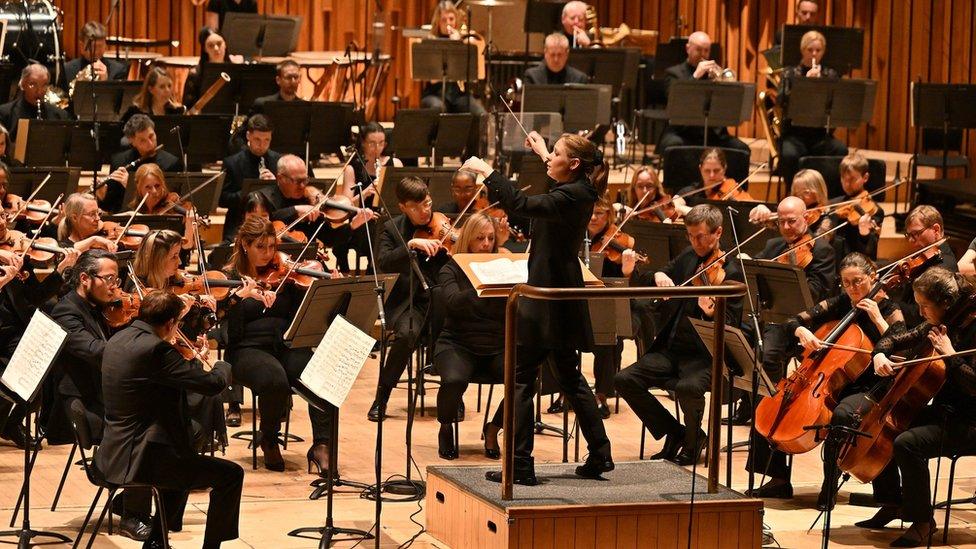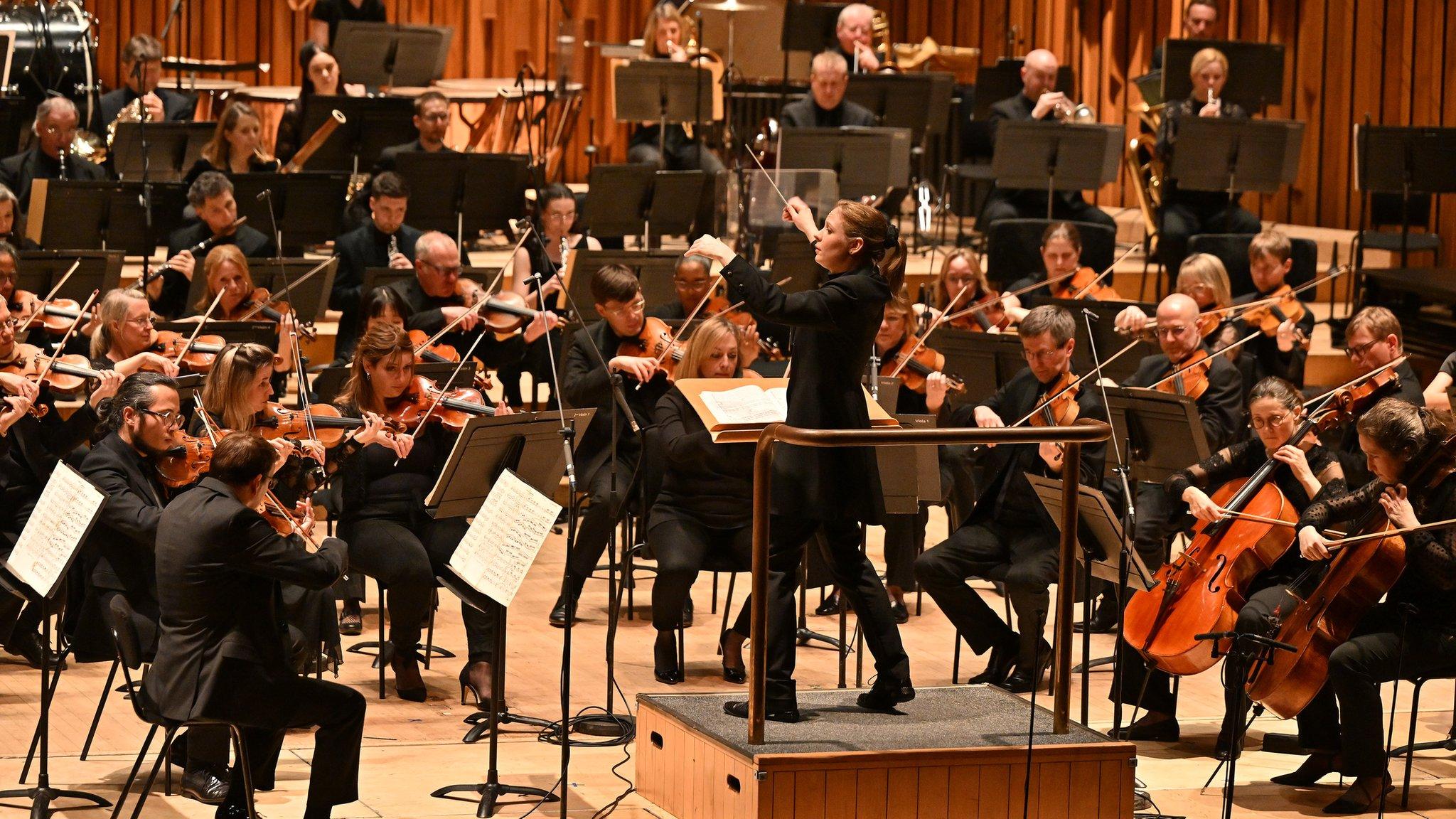Julian Lloyd Webber takes aim at 'lamentable' BBC music cuts
- Published

Lloyd Webber said trust at the BBC had been "eroded"
Cellist Julian Lloyd Webber has questioned "what the BBC still stands for" after it announced plans to make cuts to its classical music groups.
The cuts will see the end of the BBC Singers and a 20% reduction of roles in three BBC orchestras.
Writing in the Radio Times, the eminent musician described the BBC's "treatment of its own musicians" as "lamentable".
A BBC spokesperson said: "We know this is a hugely tough time for everyone impacted.
"Since 1922 the BBC has been an integral part of the classical music ecology in this country and abroad.
"For us to continue to be a leading force in the industry, we need to modernise, making some necessary and difficult changes to the way we operate, and many models have been considered over the past few months."
However, Lloyd Webber, who is also a conductor and broadcaster, questioned the decision in his Radio Times opinion piece, writing: "How did we get to this point? What has happened to our nation's beloved BBC - the organisation that has been responsible for some of the greatest classical music broadcasts in history?
"That BBC no longer exists. The dereliction of its core principles has happened stealthily, over many years and with a lack of transparency that has eroded trust both inside and outside the organisation."
He also claimed "the manner of the way these decisions are being reached and announced has rebounded badly on the BBC", adding that the "BBC's long-term downgrading of classical music has finally come under public scrutiny."

Which performance groups are affected?
The BBC Singers, based at the BBC's Maida Vale Studios in London, will be axed. It is Britain's only full-time professional chamber choir. The choir performs across the UK and around the world, making annual appearances at the BBC Proms. Most of its performances air on BBC Radio 3.
The BBC's three English orchestras - Symphony, Concert and Philharmonic - will see a 20% reduction in roles.
The BBC Concert Orchestra can be heard on BBC Radio 2's Sunday Night Is Music Night and on BBC Radio 3. It explores a wide selection of music, ranging from classical to contemporary.
The BBC Philharmonic is based at Media City UK in Salford, and performs an annual season of concerts at Manchester's Bridgewater Hall, as well as giving regular concerts at other venues across the north of England.
The BBC Symphony Orchestra plays a major role at The Proms, and also has an annual season at London's Barbican. Its commitment to contemporary music is demonstrated by a range of premieres each season.

Lloyd Webber, the brother of composer and music mogul Andrew Lloyd Webber, is not the only voice to have sounded alarm at the changes.
Conductor Sir John Elliot Gardener told Radio 4's Today programme, external on Saturday that the BBC's decision to axe the BBC Singers was "a scandal".
When the plans were announced earlier this month, the corporation said the new strategy would create "agile ensembles" which can work with "more musicians and broadcasting from more venues" around the UK.
The BBC Singers would be replaced by investment "more widely in the future of choral singing across the UK" and a choral development programme for new talent, it said.

The BBC Symphony Orchestra conducted by Gemma New performed in February
But Sir John said: "I think that's baloney. All the elements suggest that the people who have made these decisions don't give a flying fig and probably none of them have ever attended a choral concert in their lives."
And in a letter published in The Times on Friday, external, senior music figures warned against the damage to Britain's "internationally revered choral sector".
The signatories wrote: "We stand united in our utter dismay at the BBC's planned disbandment of the UK's only full-time professional chamber choir, the BBC Singers. This decision is indicative of the persistent devaluation of choral music and the nation's rich and excellent choral heritage."
The Musician's Union (MU) has described the changes as "utterly devastating".
But in its statement on Monday, the BBC said the new plans had been carefully considered.
"Whilst some may disagree with the tough decisions we've had to make in what are financially challenging times, we have developed the classical strategy carefully and diligently.
"We know this is a hugely tough time for everyone impacted. We will continue to do all we can to support those affected by these changes and to engage with the industry, and we are in consultation with the Musicians' Union."
- Published7 March 2023
